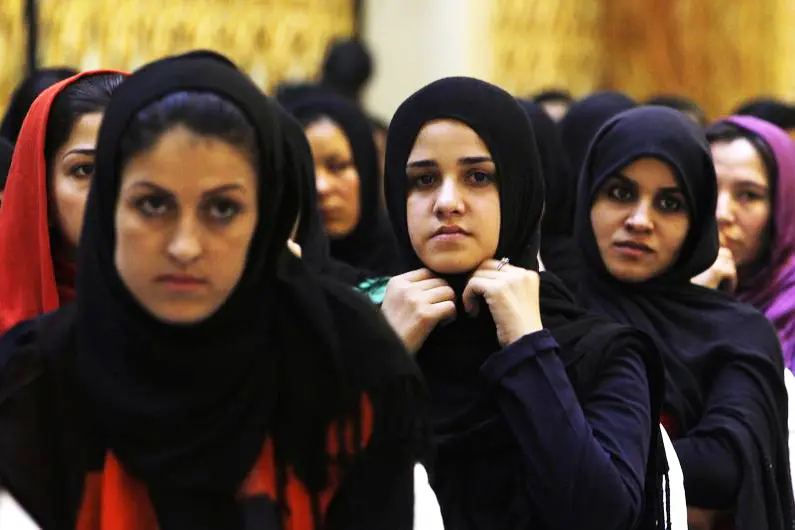PHOTO
Jordanian women face social, economic and structural challenges that reduce their chances of growing a business within the Kingdom’s entrepreneurial ecosystem, according to socioeconomic researcher Shereen Al Abbady.
Her remarks came during a roundtable discussion on the reshaping of the entrepreneurial journey of women held by Endeavor Jordan and the company World of Letters, where Abbady presented the findings of a report on the current entrepreneurial conditions in Jordan.
Endeavor Jordan’s Managing Director Reem Goussous lamented that “the number of female entrepreneurs comprises only 22 per cent of Endeavor Jordan’s current portfolio”, adding that the company “clearly sees” the challenges these women face through its regular interaction with them, and that the challenges are “distinctly different” than those faced by men.
“Entrepreneurship is a critical enabler for sustainable development, and a timely tool for Jordan given its slow economic growth and high levels of unemployment among women,” Abbady said, noting that, while the unemployment rate among males stands at 15.8 per cent, it rises up to 27.2 per cent when it comes to women.
“Unfortunately, entrepreneurship has been declining in recent years and it is not as promising as it once was for the women of Jordan,” the researcher continued, pointing out that the total entrepreneurial activity in the Kingdom decreased from 18.3 per cent in 2014 to a mere 8.3 per cent in 2016.
“While the processes and policies of business incubators, accelerators and support programmes are unbiased, only one fourth of incubated entrepreneurs are females,” Abbady noted, adding that the main findings of the study suggest that women face “several indirect challenges that reduce their chances of receiving benefits from opportunities within Jordan’s entrepreneurial ecosystem”.
Investor reluctance, entrepreneurial self-efficacy, access to finance, conflict between social values and career choice and legal liability are the main challenges experienced by women pursuing business in the Kingdom, according to the researcher.
“Women continuously challenge investor expectations regarding their ability to balance roles as wives, mothers and business owners at the same time,” Abbady said, claiming that “most investors presume that women cannot manage their business as efficiently as their male counterparts, resulting in fewer prospects of securing investments”.
The researcher explained that access to finance is “primarily hindered by a lack of knowledge or access to wealth”, adding that the situation is worsened by feelings of self doubt and fear of failure.
High competition and lack of access to cash complicated the endeavours of Lana Badran, founder of the biggest nursery in the Hashemi Shamali area.
“Obtaining funding to start a business in Jordan is usually easier for males than females,” the entrepreneur told The Jordan Times, recalling how several institutions refused to finance her to kick-start her business.
Abbady added that “tradition does not encourage entrepreneurship as a career choice for women, with family roles shifting the scale against entrepreneurial aspirations”.
Social misconceptions over women pursuing business were also one of the challenges faced by Badran, who believes that “society delivers this message to entrepreneur women that we are crazy, and that a business is too much for us to manage”.
“‘You are a female, you are supposed to stay at home, and you should be taking care of your own children instead of others’ is the criticism I was getting,” she recounted, explaining that “a lot of people still don’t understand that you can balance the different aspects of your life and keep on taking care of your family while being a working woman”.
“I only have Fridays off and I work for many hours, but nursing is my life and it is what allows me to provide my children with a better quality of life,” Badran continued, noting that, thanks to her job, she is now capable of giving her children a better health and education.
The main findings of the report were presented as animated stories to be discussed among attendees, which included top entrepreneurs and leading business women and men from across Jordan.
“Religion and traditional ideologies are big barriers in areas outside of the capital, as many still believe that taking a loan from a bank is frowned upon religiously,” participant Lina Hundaileh said during the discussion, stressing the need to tackle the issue of women inclusion by addressing the specific needs of different areas and communities.
For her part, Hadeel Anabtawi of The Alchemist Lab noted that “women have to network more efficiently and know who to network with, in addition to supporting each other recommending relevant networks that will add value”.
© Copyright The Jordan Times. All rights reserved. Provided by SyndiGate Media Inc. (Syndigate.info).





















